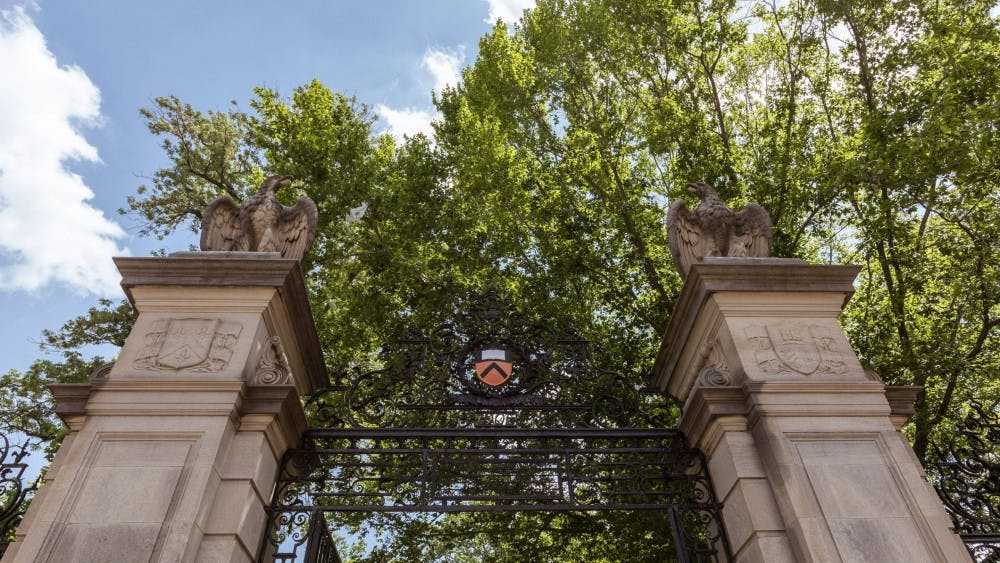Despite our individual responsibilities, some issues are too big to be resolved individually.
When we think of professionally and financially successful people, more than knowing who they are, it is important to ask where they come from.
There is myriad evidence that in many countries, meritocracy is a myth and social reproduction is the norm. In order to allow all citizens to reach their full potential regardless of the circumstances they were born in, we must work to break the cycle of social reproduction. As Princeton students, we are some of the most privileged people in the world. While that doesn’t mean all of us come from privileged backgrounds, it does mean we have a part to play in promoting social mobility. We are the change-makers here because we are privileged to hold one of the best tools in the world: education.
To understand our role, it is first important to explain the problem. Many people who reach the top levels in various societies are very talented and hardworking. But others, equally talented and hardworking, will never achieve the same material success.
Therefore, we can assume that there are other, less apparent factors creating differences: where and when someone was born, who educated them, what resources they had growing up, who crossed their paths, and what opportunities they were given. Consequently, to understand what builds the relative success or failure of each individual, it is necessary to look first at the starting conditions, which implies looking at the role of social inequalities.
Inequalities are, by nature, multidimensional. They always intersect and relate. The economic component is critical. Nevertheless, this is not the only factor since economic inequality is intrinsically associated with social, academic, and cultural inequalities.
This tangle of unfavorable starting conditions is so strong that it is difficult to break the social reproduction cycle. We all realize that there is rarely an evolution in social mobility between the present and future generations, especially among the most disadvantaged classes. A child’s income, education, and social status are generally highly affected by that of their parents.
A 2018 study by the Organization for Economic Co-operation and Development (OECD) shows that those at the bottom are still glued to the floor because the social elevator does not work. In the US, for example, poverty and inequality rank among the worst in the club of the wealthy OECD member countries.

In the end, particularly in a wealthy country like the United States, the persistence of extreme poverty is a political choice made by those in power.
One of the results of this choice is unequal access to quality education. While on its surface, education seems to be based only on the merits of the individual — the grades the student achieves — it is necessary to ask who tends to get the highest marks, and why.
Evidence shows that educational attainment is inherited. And one of the most determinant factors for children’s chances of success is their parents’ education. It often ends up determining the school trajectories of the students themselves. And that, in turn, may spark new opportunities. This is called inherited meritocracy: the money invested in education gives people sophisticated degrees, which generate enormous income that, in turn, is invested in their children, perpetuating the cycle.
That is, the most successful are those who have access to opportunities that lead to even more opportunities and more success. And even against our will, meritocracy has become the aristocracy of the modern day and has done nothing but perpetuate the model it was created to fight.

Therefore, saying that access to education is the same for everyone and that those who have more capacity or who have worked the most go further is a fallacy. Inequalities are not deterministic, for sure. However, they highly affect the individual’s trajectory since they are their starting condition.
How do we change this system, then? The first step we must take is dramatically reducing the gap between investments made in the education of wealthy children versus all others.
Otherwise, we will continue to walk this dangerous path: believing that success depends only on individual merit, which hinders the investments needed to provide these opportunities.
The societies that will prosper the most in the years to come are those that give their citizens the chance to realize their potential to the fullest; that give their children the opportunities they need to choose a career based on passion, not on social pressure and money; that encourage the population to invest and promote financial education. However, we should not leave this action to the government alone. It must come from us.
At Princeton, we have knowledge surrounding us all the time, and that is the answer. It will always be about education.
There are already many initiatives that Princeton students promote to give high school and middle school students incredible opportunities and experiences, which are already clearly making an impact. Service in Style, Princeton E-Club: IgniteSTEM, Princeton University Energy Association and many others are already heading this change. However, compared to the number of individuals we have on campus, their impact is small.
If every student committed to volunteering to promote educational access among middle and high schoolers, we could impact the lives of thousands of people. Such volunteer work includes not only going to schools and giving classes or workshops, but also being an example. You can give students hints and inspire them by telling them the path you took, the dreams you had, and how you achieved them. You can encourage them and help them with extracurricular projects. You can be a part of their lives and give the opportunities those teenagers need until the state can afford to do so by itself.
Think about the power we all hold. A few hours of our week can help break a whole unfair system. What is stopping us from doing it, then?
Maria Luisa Parada is a rising member of the class of 2025 from São Paulo, Brazil. She can be reached at marialuisavieiraparada@gmail.com.








